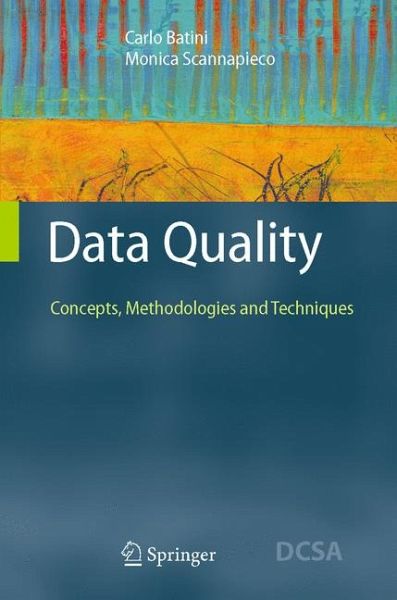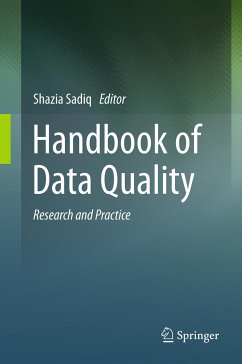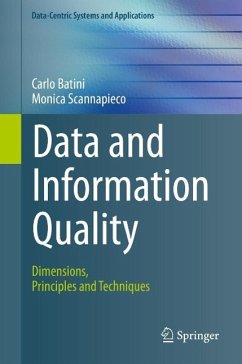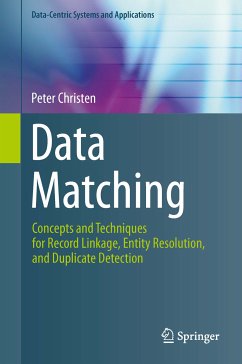
Data Quality (eBook, PDF)
Concepts, Methodologies and Techniques
Versandkostenfrei!
Sofort per Download lieferbar
72,95 €
inkl. MwSt.
Weitere Ausgaben:

PAYBACK Punkte
36 °P sammeln!
Poor data quality can seriously hinder the efficiency and effectiveness of organizations and businesses. The growing awareness of such repercussions has led to major public initiatives like the "Data Quality Act" in the USA and the "European 2003/98" directive of the European Parliament. This book presents a comprehensive and systematic introduction to the wide array of issues related to data quality. Beginning with a detailed description of the parameters of data quality, the text gives an excellent overview of the current state of the art, describing techniques and methodologies from core da...
Poor data quality can seriously hinder the efficiency and effectiveness of organizations and businesses. The growing awareness of such repercussions has led to major public initiatives like the "Data Quality Act" in the USA and the "European 2003/98" directive of the European Parliament. This book presents a comprehensive and systematic introduction to the wide array of issues related to data quality. Beginning with a detailed description of the parameters of data quality, the text gives an excellent overview of the current state of the art, describing techniques and methodologies from core data quality research as well as from related fields like data mining, probability theory, statistical data analysis, and machine learning. The presentation concludes with a short description and critical comparison of tools and practical methodologies, which will help readers to resolve their own quality problems. This book is an ideal combination of sound theoretical foundation and practical approach.
Dieser Download kann aus rechtlichen Gründen nur mit Rechnungsadresse in A, B, BG, CY, CZ, D, DK, EW, E, FIN, F, GR, HR, H, IRL, I, LT, L, LR, M, NL, PL, P, R, S, SLO, SK ausgeliefert werden.












